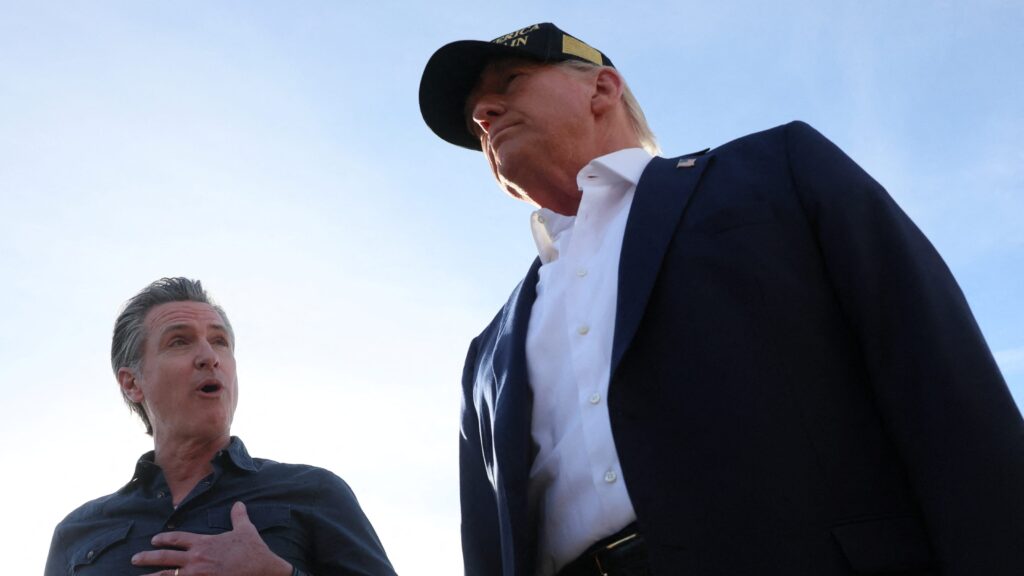President Donald Trump and California Governor Gavin Newsom are engaged in a fiery confrontation over immigration enforcement in Los Angeles, each appealing to their political bases. Trump deployed National Guard troops and Marines, portraying himself as a forceful leader, while Newsom criticized the military deployment as dictatorial and filed a lawsuit against it. Political scientist John Pitney Jr. notes that Trump benefits from showcasing strength to his supporters, while Newsom solidifies his support among progressive Democrats who oppose Trump.
However, experts caution that if the protests continue, both Trump and Newsom risk appearing ineffective. Trump’s campaign on immigration enforcement aligns with his stance on mass deportations and border security, portraying California as chaotic and poorly governed. Newsom faces pressure from the GOP while trying to criticize Trump’s actions and maintain order in the state, balancing his opposition to Trump’s policies with his national political ambitions.
The clash has drawn national attention, with surrogates fueling the political fires. House Speaker Mike Johnson criticized Newsom, and Homeland Security Secretary Kristi Noem condemned him for obstructing federal law. While some Democrats support Newsom, others express concerns about the escalating violence. The situation underscores the tension between law enforcement, protests, and political messaging, with differing views on the role of the military in civilian law enforcement. As the standoff continues, both Trump and Newsom face challenges in navigating the political landscape and addressing the complex issues surrounding immigration enforcement in Los Angeles.

